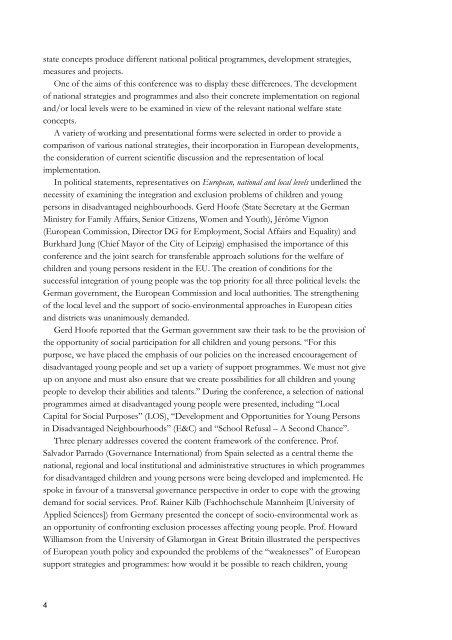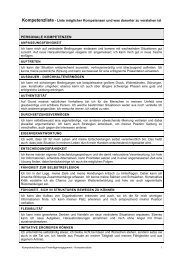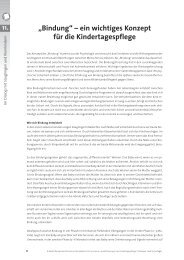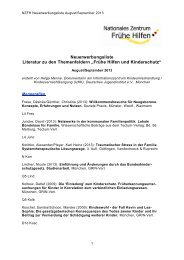download - Deutsches Jugendinstitut e.V.
download - Deutsches Jugendinstitut e.V.
download - Deutsches Jugendinstitut e.V.
Create successful ePaper yourself
Turn your PDF publications into a flip-book with our unique Google optimized e-Paper software.
state concepts produce different national political programmes, development strategies,<br />
measures and projects.<br />
One of the aims of this conference was to display these differences. The development<br />
of national strategies and programmes and also their concrete implementation on regional<br />
and/or local levels were to be examined in view of the relevant national welfare state<br />
concepts.<br />
A variety of working and presentational forms were selected in order to provide a<br />
comparison of various national strategies, their incorporation in European developments,<br />
the consideration of current scientific discussion and the representation of local<br />
implementation.<br />
In political statements, representatives on European, national and local levels underlined the<br />
necessity of examining the integration and exclusion problems of children and young<br />
persons in disadvantaged neighbourhoods. Gerd Hoofe (State Secretary at the German<br />
Ministry for Family Affairs, Senior Citizens, Women and Youth), Jérôme Vignon<br />
(European Commission, Director DG for Employment, Social Affairs and Equality) and<br />
Burkhard Jung (Chief Mayor of the City of Leipzig) emphasised the importance of this<br />
conference and the joint search for transferable approach solutions for the welfare of<br />
children and young persons resident in the EU. The creation of conditions for the<br />
successful integration of young people was the top priority for all three political levels: the<br />
German government, the European Commission and local authorities. The strengthening<br />
of the local level and the support of socio-environmental approaches in European cities<br />
and districts was unanimously demanded.<br />
Gerd Hoofe reported that the German government saw their task to be the provision of<br />
the opportunity of social participation for all children and young persons. “For this<br />
purpose, we have placed the emphasis of our policies on the increased encouragement of<br />
disadvantaged young people and set up a variety of support programmes. We must not give<br />
up on anyone and must also ensure that we create possibilities for all children and young<br />
people to develop their abilities and talents.” During the conference, a selection of national<br />
programmes aimed at disadvantaged young people were presented, including “Local<br />
Capital for Social Purposes” (LOS), “Development and Opportunities for Young Persons<br />
in Disadvantaged Neighbourhoods” (E&C) and “School Refusal – A Second Chance”.<br />
Three plenary addresses covered the content framework of the conference. Prof.<br />
Salvador Parrado (Governance International) from Spain selected as a central theme the<br />
national, regional and local institutional and administrative structures in which programmes<br />
for disadvantaged children and young persons were being developed and implemented. He<br />
spoke in favour of a transversal governance perspective in order to cope with the growing<br />
demand for social services. Prof. Rainer Kilb (Fachhochschule Mannheim [University of<br />
Applied Sciences]) from Germany presented the concept of socio-environmental work as<br />
an opportunity of confronting exclusion processes affecting young people. Prof. Howard<br />
Williamson from the University of Glamorgan in Great Britain illustrated the perspectives<br />
of European youth policy and expounded the problems of the “weaknesses” of European<br />
support strategies and programmes: how would it be possible to reach children, young<br />
4

















